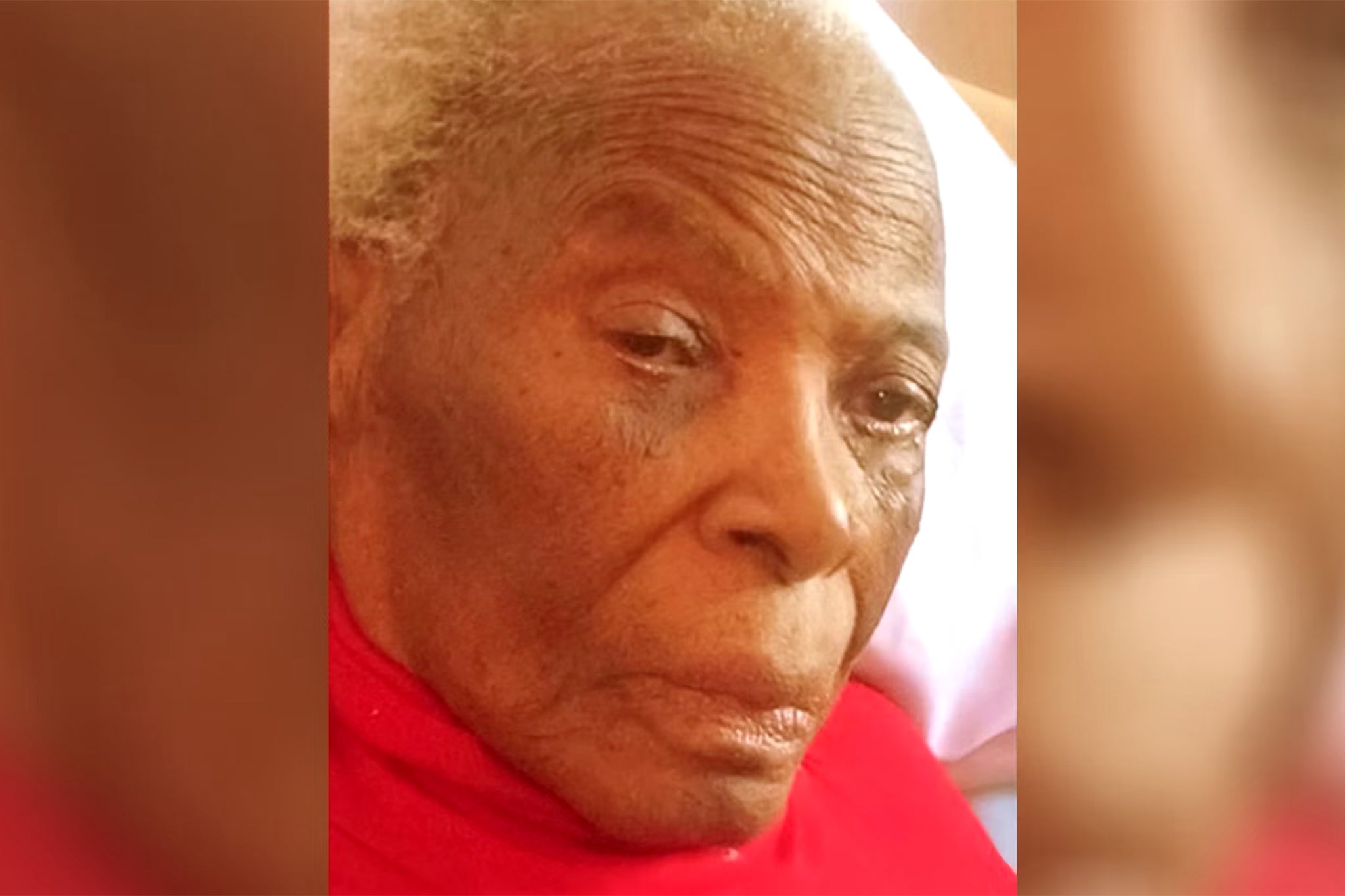Revealed: Dementia-stricken Windrush pensioner, 97, died in pain following years of care home ‘neglect’
Exclusive: Clementina Smith died at Murrayfield care home partly due to neglect, a coroner has found. Now: her family are demanding justice

A woman who arrived in Britain as part of the Windrush generation died after severely infected gangrene on her foot went untreated at a care home for more than a year, The Independent can reveal.
Clementina Smith, 97, a resident at Murrayfield Care Home in north London, developed the painful condition which resulted in blood poisoning before relatives raised the alarm and she was rushed to hospital in November 2017.
In a letter seen by The Independent, Murrayfield Care Home admits that the sepsis was likely caused by the gangrene, which developed from a pressure sore on her foot that staff had initially failed to identify.
Mrs Smith died in June 2018, and an inquest found the care home partly responsible for her death due to negligent care. This negligence contributed to the development of gangrene the previous year while she was still a resident there.
Having moved into the home in 2013, Mrs Smith’s family first became concerned for her wellbeing after noticing changes in her behaviour and deteriorating hygiene, before discovering the rotting on her left foot.
They lodged two police reports for neglect and alleged assault in 2014 and 2017 respectively.
“The home knew that we would go to see her on specific days. But on the occasions prior to the police reports, we visited outside of the time that they were used to us coming and we couldn’t believe her condition,” Claudia Smith, Clementina’s granddaughter, said.
“Initially, we became concerned about her smell, the condition of her feet and it’s clear that she wasn’t being looked after to the standard we’d expect.
“As a family, we feel that our grandmother hasn’t been able to rest in peace while questions have gone unanswered. We haven’t been able to heal.”

The grandmother, who was also diagnosed with dementia, died eight months after she left the care home.
By the time of her death, she was also unable to eat due to a large abscess in her mouth, thrush in her mouth and severe dehydration which all developed while she was a resident in the care home, among other injuries, according to a draft safeguarding report.
Mrs Smith also had thrush in her eye which caused her sight to become impaired, her family said.
The official causes of death were erosive oesophagitis and a gangrenous foot ulceration, according to a coroner’s report.
Born in Grenada, Mrs Smith migrated to Britain during the 1960s as part of the mass Windrush migration from the Caribbean.
During visits to the care home, family members noticed that she became increasingly reclusive.
Correspondence from the former management of the Murrayfield Care Home has acknowledged the flawed recording of details surrounding Mrs Smith’s care.
The home has since changed management and is now run by Gold Care Homes.
Six years later, her family say that justice has not yet been served and there’s been no accountability for her death.
“I feel emotionally drained,” Claudia said.
“When my grandmother moved into the home, we expected that she’d be looked after. She was paying for a service, and we relied on the system to support the family, as we were all working. So, to be in this situation is very damning, and to learn that this was her fate is very disheartening.”
After being discharged from the hospital in December 2017 after doctors said she would need palliative care, Mrs Smith moved into her daughter’s home where her family nursed her. Claudia told The Independent that she quit her job and devoted her time to her grandmother’s care, before she died eight months later.
“It is imperative that the British public becomes aware of the mistreatment endured by the elderly in care homes,” Claudia continued.
“There was no documentation about the severity of her injuries – she had nine life-threatening conditions and broken toes. The system let her down.
“My grandmother died a very painful death and the memory of her will never feel the same. I’m fighting for justice for her; you don’t put an old person in a home to go through this”.
The Metropolitan Police has confirmed that it is investigating following complaints from the family that its officers failed to act upon the previous concerns.
According to the family, the police are also probing calls for care home staff members to be prosecuted for Mrs Smith’s poor treatment.
The family also say that they saw injuries, including a wound on Mrs Smith’s right foot, suggesting their loved one had been physically assaulted by staff.
Detective Chief Superintendent Caroline Haines said: “The death of a family member is always a difficult time for everyone, and this will only be made worse if there are concerns about the treatment they received in the final years of their life. We remain in contact with the family and are continuing to assess the allegations they have put to us.”
Following Mrs Smith’s death, an inquest took place, and a coroner issued the care home with a Regulation 28 Prevention of Future Deaths report – which outlines multiple failures on the organisation’s part.
In addition to gangrene, it was established that her death was also caused by several underlying health conditions including pneumonia and frailty syndrome of the elderly.
Mrs Smith’s family is suing Four Seasons Health Care, which managed the home at the time of her death.
A letter from Four Seasons, seen by The Independent, acknowledges failings in looking after the elderly resident.
A spokesperson expressed “regret” over their staff members’ treatment of Mrs Smith and insist they have taken the matters raised by the coroner “extremely seriously”, adding that an action plan was immediately implemented and reporting system for similar instances were upgraded.
Bookmark popover
Removed from bookmarks